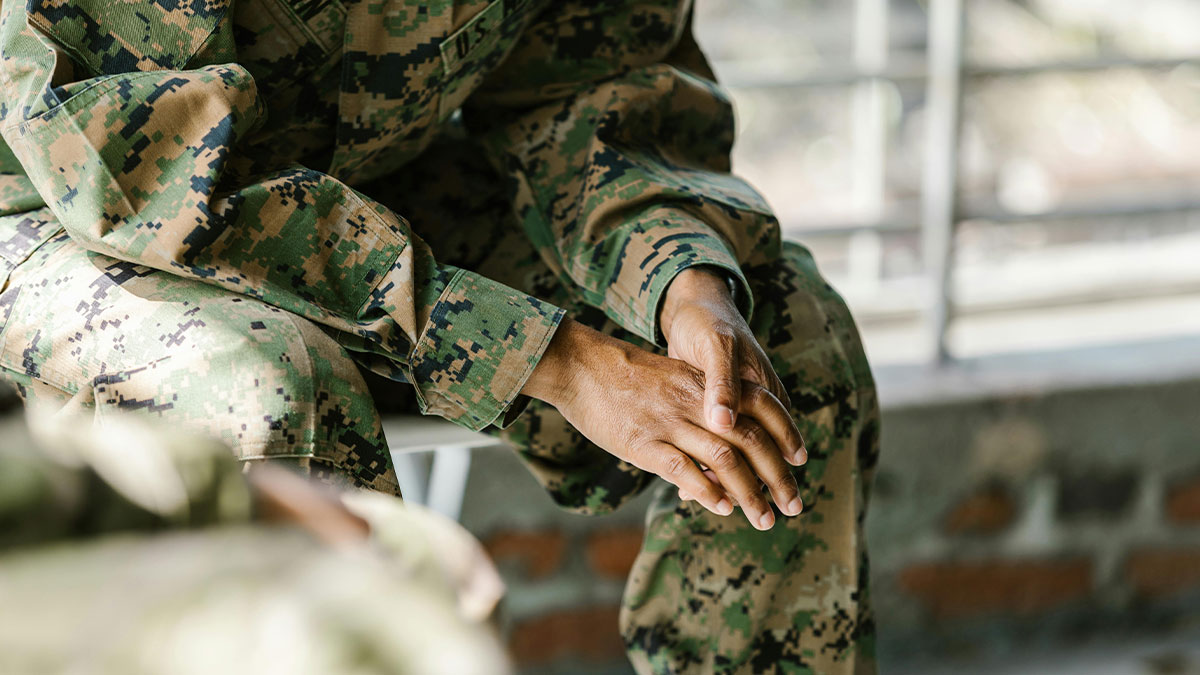We recommend five key therapy tips for disabled veterans to improve mental health and well-being. First, local VA offices offer 24/7 access to trained counselors, providing continuous support. Second, engaging with online communities gives emotional support during tough times. Third, consider alternative treatments like microdosing magic mushrooms and ketamine therapy for additional mental health care. Fourth, leverage specialized VA mental health programs tailored for PTSD and addictions. Finally, participating in social and family therapies helps improve communication and relationships. These steps open doors to a richer support system and a brighter journey ahead.
Key Takeaways
- Engage with VA counselors for personalized mental health support and consistent care.
- Participate in social skills trainingTraining designed to help individuals with disabilities develop effective communication and interper... to enhance communication and interpersonal relationships.
- Connect with online communities to share experiences and receive emotional support.
- Explore alternative treatments like microdosing magic mushrooms and ketamine therapy under medical supervision.
Veterans Administration Support

Local VA offices provide 24/7 access to trained counselors ready to assist disabled veterans. When we're maneuvering through the intricacies of post-military life, especially with disabilities, the VA becomes an essential ally.
The veteran mental health servicesProfessional services that support individuals in managing mental health conditions, such as therapy... offered are extensive, ensuring we have the support we need. These services include mental health resources specifically tailored for us, such as PTSD treatment programs that address the unique experiences we've had in service.
Accessing these resources is straightforward. VA offices are staffed with experienced professionals who guide us through the process, ensuring we receive the necessary care and support. From mental health evaluations to ongoing therapy, the VA's approach is holistic and veteran-centered.
Peer supportA system where individuals with disabilities provide support and share experiences to help each othe... is another critical component of the VA's offerings. Connecting with others who've faced similar challenges can be incredibly healing. The VA facilitates these connections, providing opportunities to share experiences and strategies for coping.
Encouragingly, we don't have to navigate this journey alone. By reaching out to our nearest VA office, we can tap into a network of care designed to help us thrive. Whether it's immediate crisis intervention or long-term support, the VA stands ready to assist.
Community and Online Support
Engaging with online forums and communities can provide disabled veterans with an essential source of support and connection. These platforms allow us to share our struggles and experiences, helping us realize we're not alone in our journey. By connecting with others who've faced similar challenges, we can gain valuable insights and find emotional support that might be hard to come by elsewhere.
Here are three ways online communities can enhance our mental health care and overall well-being:
1. Access to InformationThe right of individuals with disabilities to obtain and use information, often requiring accessible...:
Online forums like Footballguys offer resources and advice tailored specifically for disabled veterans. We can find threads related to military disability and tap into a wealth of knowledge from those who've walked a similar path.
2. Emotional Support:
Being part of an online community provides a platform where we can share our struggles and triumphs. This sense of belonging can be incredibly uplifting and offer the emotional support we need during tough times.
3. Building Connections:
Engaging with online communities allows us to connect with individuals who understand our unique experiences. These connections can foster a supportive network that extends beyond the digital domain, enriching our lives and mental health care.
Alternative Treatment Options
While online communities offer emotional and informational support, exploring different treatment options can further enhance our mental health care journey. Veterans can receive significant benefits from alternative treatments like microdosing magic mushrooms and ketamine therapy. These specific types of treatments have shown promise in addressing mental health issues such as depressionA mental health condition marked by persistent feelings of sadness and loss of interest., anxiety, and PTSD.
Microdosing magic mushrooms involves taking small, non-hallucinogenic doses to improve mood and cognitive function. Research suggests that exploring different dosages and schedules can help us find what works best for our unique needs. It's important to consult a professional to guarantee safety and effectiveness before starting any new treatment.
Ketamine therapy, which the VA already utilizes, has demonstrated positive results for various mental health conditions. This treatment can offer relief when traditional therapies fall short, providing a new avenue for managing our symptoms.
While traditional therapies remain essential, integrating different treatments can provide additional support. It's important to seek guidance from medical professionals to navigate these options safely. With the right approach, veterans can receive thorough care that addresses both conventional and alternative methods, leading to improved mental health and well-being.
Mental Health Support Resources

Veterans have access to a wealth of mental health support resources through the VA, ensuring they receive the thorough care needed for their well-being. These resources are vital for disabled veterans, offering specialized programs to address their unique challenges. The VA provides extensive mental health services, including therapy and medications, which can greatly improve the quality of life for those struggling with issues such as PTSD, depression, and anxiety.
To make the most of these resources, disabled veterans should consider the following:
- Engage with VA Counselors: Regular check-ins and follow-ups with VA counselors can provide consistent support and monitoring, which is essential for the recovery journey. These professionals are trained to address the specific needs of disabled veterans.
- Tailored Programs: The VA offers specialized programs for veterans dealing with addictions and PTSD. These programs provide evidence-based treatments that are customized to the individual's mental health needs, ensuring effective and personalized care.
- Access to Evidence-Based Treatments: Through VA mental health services, veterans can access a variety of evidence-based treatments. These treatments have been proven effective in managing mental health conditions and helping veterans lead healthier, more fulfilling lives.
Social and Family Therapies
Social and family therapies offer disabled veterans essential tools to enhance their communication skills and strengthen their relationships. These treatment options are essential for rebuilding social interactions and repairing strained family dynamics.
Social Skills Training, often conducted in group settings, helps veterans develop critical communication and interaction skills. By engaging with fellow service members, veterans find a supportive environment where they can practice and refine their social abilities.
Family and Relational Therapy, on the other hand, focuses on the veteran's immediate support system. It provides coping strategies for family members to better understand and navigate the challenges unique to their loved one's experiences. This therapy is aimed at improving the overall well-being of the veteran by creating a nurturing and understanding family environment.
Both types of therapies are instrumental in addressing underlying issues that may affect a veteran's mental health. By participating in these therapies, veterans and their family members can learn effective coping mechanisms, enhance interpersonal relationships, and foster a sense of connection. Ultimately, these treatment options support the veteran's recovery and growth, ensuring they have a strong, supportive network to lean on.
Frequently Asked Questions
What Is the Most Effective Therapy for Veterans?
We believe Cognitive Behavioral Therapy (CBT)A type of psychotherapy that helps individuals change negative thought patterns to improve behavior ... is the most effective for veterans. It helps us address negative thought patterns and behaviors, leading to significant improvements in mental health and overall well-being. It's widely recognized and successful.
What Is the 5-Year Rule for VA Disability?
The 5 Year Rule for VA disability means if we file claims within 5 years of discharge, they're presumed service-connected. After five years, we must provide evidence linking our disability to service. This rule simplifies our claims process.
How to Get 100% VA Disability Mental Health?
To get 100% VA disability for mental health, we need to submit thorough medical evidence proving the severity of our condition. Consulting VA counselors and support systems can guide us through the application process effectively.
How to Maximize VA Disability Benefits?
We should gather thorough medical documentation, consult VA representatives, and consider legal advice to maximize our VA disability benefitsFinancial assistance provided to individuals who are unable to work due to a disability, such as Soc.... Appealing unfavorable decisions and staying informed about VA policies can greatly improve our compensation outcomes.
Conclusion
We've explored various ways to support disabled veterans, from Veterans Administration resources to community and online support.
Alternative treatments and mental health resources offer additional avenues for healing.
Let's not forget the importance of social and family therapies in fostering a strong support network.
Together, we can guarantee our veterans receive the thorough care they deserve, helping them lead fulfilling lives post-service.
Reaching out and utilizing these resources can make a world of difference.






